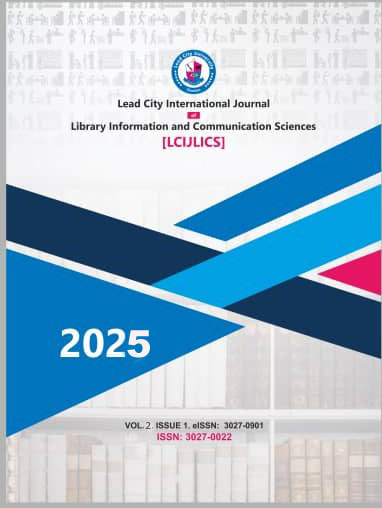RESEARCH TRENDS OF BACHELORS OF LAW STUDENTS: A CASE STUDY OF BAZE UNIVERSITY ABUJA 2017 TO 2022
Keywords:
Constitutional law, Legal education, LL.B research, and Research trendsAbstract
This study examines the research trends among Bachelor of Law (LL.B) students at Baze
University, Abuja, from 2017 to 2022, using a quantitative approach. It addresses such variables
as volume, theme preferences, and distribution over time regarding research output during the
specified period. Data were obtained from 182 submitted research projects categorized according
to subject areas using the Moys classification system and analyzed using frequency counts and
percentages. Results showed that 47.8% of the student's projects are constitutional law, followed
by Islamic law (10.4%) and criminal law (9.3%). In contrast, areas such as technological law,
evidence, and legal profession are under-explored. 2022 is marked by very at high 0.09 research
output and accounts for 41.8% of all output during the period, increasing research engagement
within the final year of the study. Notably, the study points out the narrowness in the choice of
research topics, and hereby makes recommendations for motivating students' investigations into
those areas that currently remain under-researched. Also, to make way for holistic legal
scholarship. It further underscores the importance of access to improve technological tools and
resources for innovatively supportive research. Finally, it recommends mixed-methods fieldwork
whose foci would include focus group discussions for better understanding of student choice and
faculty influences. Such offers insights into the trends shaping legal research at Baze University
and could provide an important basis on which academic programs may be aligned with broader
disciplinary and societal needs. The findings thus contribute to discourse on how to improve legal
education in Nigeria, as well as towards the effective integration of research trends into curricula.

